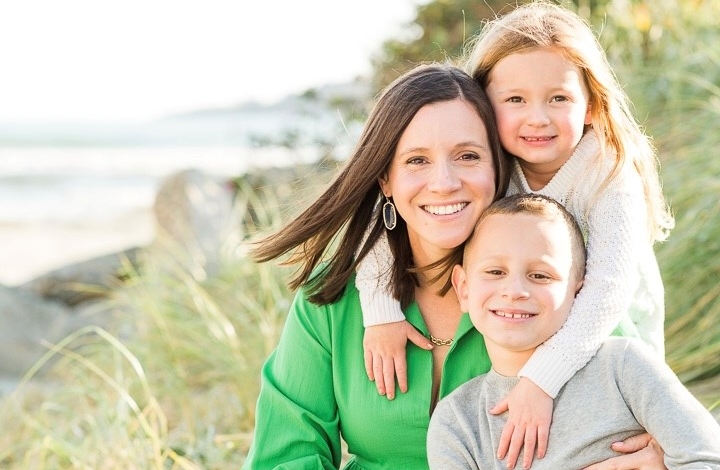- Diseases
- Acoustic Neuroma (14)
- Adrenal Gland Tumor (24)
- Anal Cancer (66)
- Anemia (2)
- Appendix Cancer (16)
- Bile Duct Cancer (28)
- Bladder Cancer (68)
- Brain Metastases (28)
- Brain Tumor (230)
- Breast Cancer (718)
- Breast Implant-Associated Anaplastic Large Cell Lymphoma (2)
- Cancer of Unknown Primary (4)
- Carcinoid Tumor (8)
- Cervical Cancer (154)
- Colon Cancer (164)
- Colorectal Cancer (110)
- Endocrine Tumor (4)
- Esophageal Cancer (42)
- Eye Cancer (36)
- Fallopian Tube Cancer (6)
- Germ Cell Tumor (4)
- Gestational Trophoblastic Disease (2)
- Head and Neck Cancer (6)
- Kidney Cancer (124)
- Leukemia (344)
- Liver Cancer (50)
- Lung Cancer (288)
- Lymphoma (284)
- Mesothelioma (14)
- Metastasis (30)
- Multiple Myeloma (98)
- Myelodysplastic Syndrome (60)
- Myeloproliferative Neoplasm (4)
- Neuroendocrine Tumors (16)
- Oral Cancer (100)
- Ovarian Cancer (170)
- Pancreatic Cancer (166)
- Parathyroid Disease (2)
- Penile Cancer (14)
- Pituitary Tumor (6)
- Prostate Cancer (144)
- Rectal Cancer (58)
- Renal Medullary Carcinoma (6)
- Salivary Gland Cancer (14)
- Sarcoma (236)
- Skin Cancer (296)
- Skull Base Tumors (56)
- Spinal Tumor (12)
- Stomach Cancer (60)
- Testicular Cancer (28)
- Throat Cancer (90)
- Thymoma (6)
- Thyroid Cancer (98)
- Tonsil Cancer (30)
- Uterine Cancer (78)
- Vaginal Cancer (14)
- Vulvar Cancer (18)
- Cancer Topic
- Adolescent and Young Adult Cancer Issues (20)
- Advance Care Planning (10)
- Biostatistics (2)
- Blood Donation (18)
- Bone Health (8)
- COVID-19 (362)
- Cancer Recurrence (120)
- Childhood Cancer Issues (120)
- Clinical Trials (626)
- Complementary Integrative Medicine (24)
- Cytogenetics (2)
- DNA Methylation (4)
- Diagnosis (230)
- Epigenetics (6)
- Fertility (64)
- Follow-up Guidelines (2)
- Health Disparities (14)
- Hereditary Cancer Syndromes (124)
- Immunology (18)
- Li-Fraumeni Syndrome (8)
- Mental Health (118)
- Molecular Diagnostics (8)
- Pain Management (62)
- Palliative Care (8)
- Pathology (10)
- Physical Therapy (18)
- Pregnancy (18)
- Prevention (896)
- Research (390)
- Second Opinion (74)
- Sexuality (16)
- Side Effects (604)
- Sleep Disorders (10)
- Stem Cell Transplantation Cellular Therapy (216)
- Support (404)
- Survivorship (322)
- Symptoms (184)
- Treatment (1776)
Losing a cousin to colorectal cancer saved his life
BY Meagan Raeke
4 minute read | Published March 03, 2021
Medically Reviewed | Last reviewed by an MD Anderson Cancer Center medical professional on March 03, 2021
As a health care quality professional, Al Thomas always made his annual physical a priority. When he went to see his primary care physician in Lexington, South Carolina, in January 2020, Al asked about his risk for colorectal cancer, even though at 38, he hadn’t reached the recommended age for a screening colonoscopy.
Al’s cousin and lifelong best friend had just been diagnosed with advanced colorectal cancer. He died a few months later, leaving behind a wife and two children. He was only three months older than Al.
“Before my cousin was diagnosed, I wasn't really educated on colorectal cancer,” Al says. “We thought he just had gas, or maybe an ulcer, and the doctors told him the same thing.”
By the time his cousin was referred for a colonoscopy, the cancer had already spread. Colorectal cancer rates are on the rise among adults under 50, especially those ages 18 to 35. Like Al’s cousin, the majority of young colorectal cancer patients are diagnosed when the cancer is more advanced, making it more difficult to treat. Black men and women are also more likely to die from the disease than patients of any other race.
“Watching what he went though was difficult, but his sacrifice wasn’t in vain – it saved my life,” says Al, who has since recovered from his own stage I colorectal cancer diagnosis and is eager to raise awareness.
At-home stool test leads to early colorectal cancer diagnosis
Al’s doctor assured him that he wasn’t at high risk.
“I got the answer most young people get: you’re too young for colorectal cancer, and there’s no family history,” Al says.
His doctor still wasn’t worried when Al’s blood work showed mild anemia later that year. After all, he didn’t have any other symptoms. But Al wanted to be sure, so they agreed a reasonable next step would be an at-home stool test, also called a fecal occult blood test.
Stool-based screening tests can be ordered online and done at home, but they’re less accurate, and abnormal results need to be followed up with a colonoscopy. Al’s test showed microscopic traces of blood. Even though the results were within normal ranges, he asked to move forward with a colonoscopy.
To his doctor’s surprise, the colonoscopy revealed a cancerous polyp. Al would need surgery to be sure the cancer was entirely removed. But the cancer had been caught at an early stage, when surgery alone has the potential to cure.
“I knew where I was going for colorectal cancer treatment”
When Al’s cousin was diagnosed, they’d researched MD Anderson. But between the emerging COVID-19 pandemic and the rapid progression of his disease, traveling to Houston wasn’t feasible.
“When I learned about my situation, I knew where I was going,” Al says. “I didn’t want to take any chances. I wanted to have information from someone who specializes in colorectal cancer, who does this every day, so I could make the best, most appropriate decision for me and my family.”
Al and his wife, Demetria, made the 14-hour drive from South Carolina to Houston for his initial appointment with surgeon Y. Nancy You, M.D., who specializes in early-onset colorectal cancer. Due to MD Anderson’s COVID-19 precautions, Demetria joined the appointment with Dr. You virtually.
“I don’t think there was a question we asked that she couldn’t answer, or wasn’t willing to answer for us,” he says of Dr. You, who recommended minimally invasive robotic surgery to remove a portion of his colon and surrounding lymph nodes.
After deciding to move forward with the surgery, Al and Demetria prepared to fly back to Houston with their two children. The kids and Demetria stayed near the hospital while Al recovered in the hospital.
Two weeks after his surgery, Dr. You confirmed the cancer was gone. Al will continue to visit MD Anderson annually for follow-up colonoscopies, CT scans and blood work to make sure the cancer hasn’t returned.
Raising awareness of colorectal cancer
Before the surgery, Al felt like he was in the best shape of his life. But recovery still wasn’t easy, and it’s taken time to get his full strength back. Al’s message to others his age is to not assume you’re invincible or too young for a colorectal cancer diagnosis.
Having gone through surgery, Al is also determined to make sure that his family, friends and “anyone with a listening ear” understands that a colonoscopy can find and remove polyps, potentially even before they become cancerous and require further treatment.
“I know the colorectal cancer mortality rate is significant when it comes to Black and brown folks, so I want to help educate as many people as I can,” he says. “If you have symptoms, get them checked out, and be persistent with your doctor. After seeing what my family went through with my cousin, I know how things could have gone for me. He saved my life, and now, hopefully, other people’s lives too.”
Request an appointment at MD Anderson online or by calling 1-866-857-6770.
Related Cancerwise Stories

I didn’t want to take any chances.
Al Thomas
Survivor





